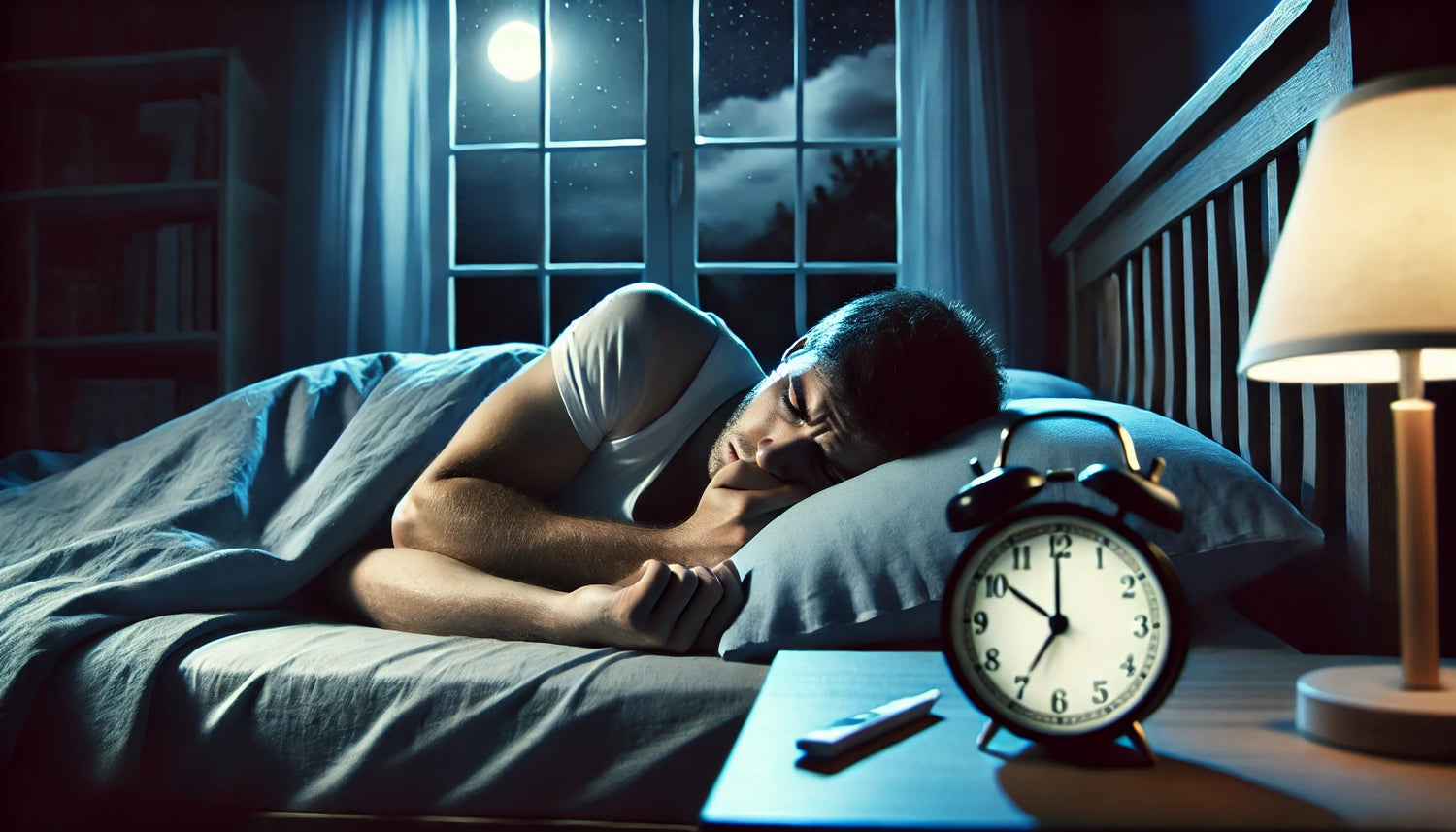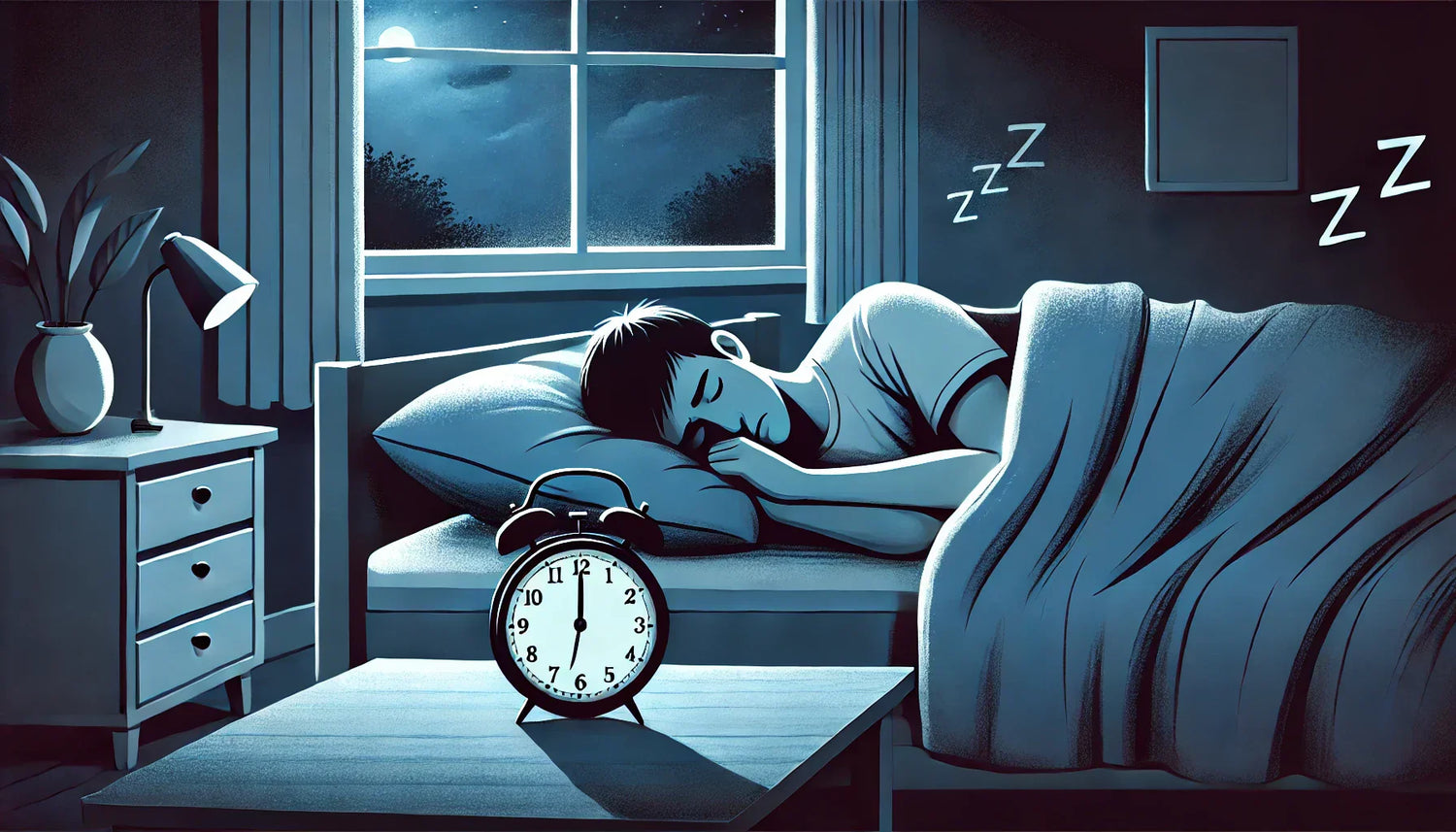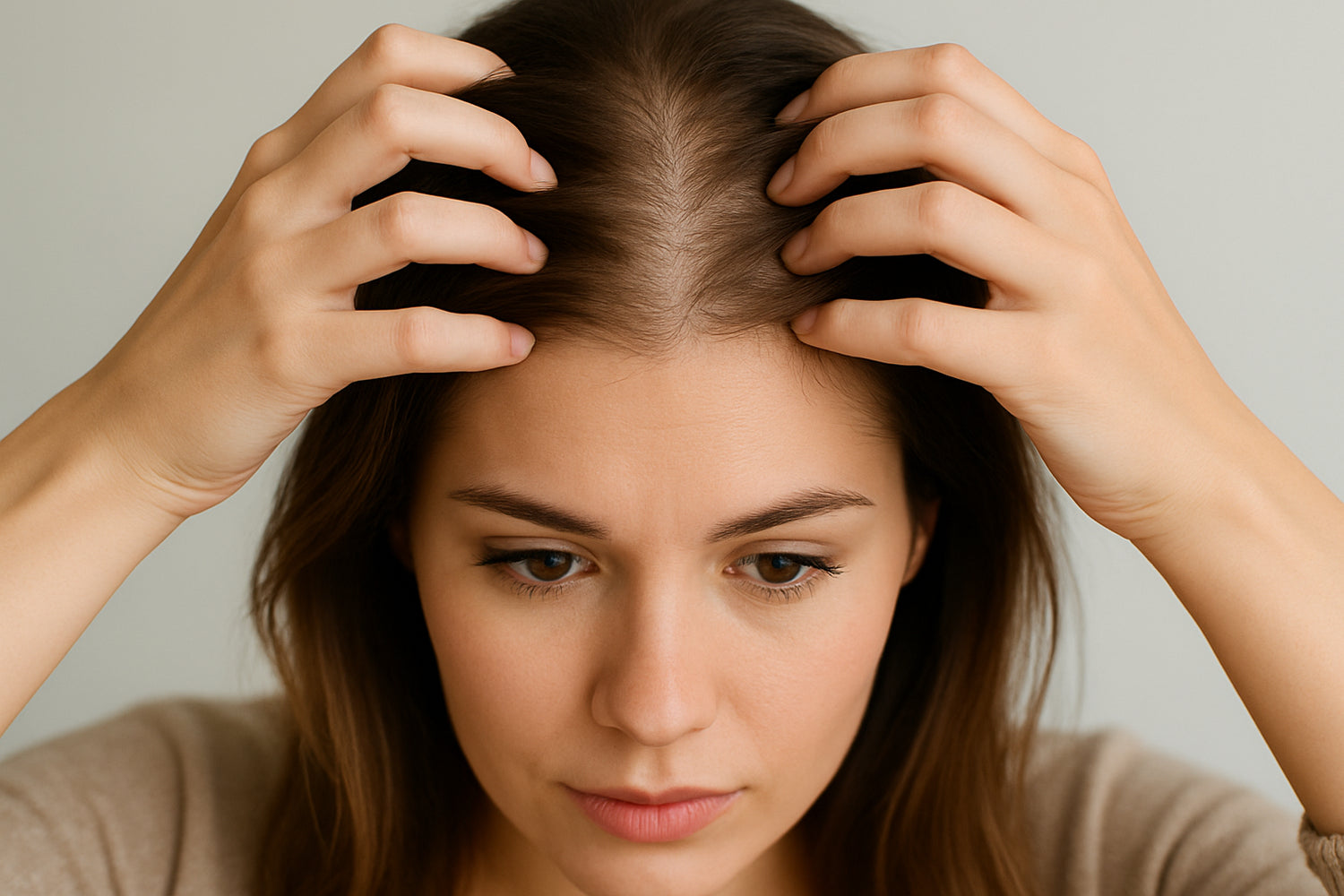Who has never spent long minutes, even hours, desperately waiting for sleep without managing to find the slightest respite?
Difficulty falling asleep is a widespread phenomenon, the repercussions of which on daily life are no longer in doubt: persistent fatigue, irritability, difficulty concentrating, loss of motivation, etc. However, understanding the mechanisms behind this disorder, as well as the factors that promote or hinder access to sleep, allows us to implement simple and effective solutions.
In this article, we will discuss the mechanism behind sleep onset disorders, the multiple causes of this type of insomnia and we will examine simple solutions to implement in order to improve the quality of your sleep.
- What is meant by “difficulty falling asleep”?
- Causes of Difficulty Falling Asleep
- Solutions for treating difficulty falling asleep
What is meant by “difficulty falling asleep”?

Insomnia is a lack of or poor quality of sleep that has a significant impact on physical, mental and social activities during the day .
There are several categories of insomnia:
- Midnight insomnia : the person wakes up during the night, one or more times, and has difficulty falling back to sleep.
- Early morning insomnia : the person falls asleep without difficulty, but wakes up around four or five in the morning and is unable to fall back asleep.
- Sleep onset insomnia : the person goes to bed at a usual time, and one or two hours later, they still have not fallen asleep. This is what interests us in this article.
But what is this due to?
Causes of Difficulty Falling Asleep
Psychological causes of difficulty falling asleep
Stress and anxiety are major factors in insomnia, making it difficult to fall asleep.
Depression is also strongly associated with sleep disturbances. Ruminations and negative thoughts at bedtime prevent the body and mind from relaxing, making it difficult to fall asleep .
Generalized anxiety disorder significantly increases the risk of chronic insomnia.
Physiological factors of difficulty falling asleep
Circadian rhythm disruptions, due to various factors such as jet lag or shift work, can make it difficult to fall asleep .
Age-related melatonin deficiency partly explains why older people are more prone to sleep disturbances.
Chronic pain and certain diseases such as asthma, heart failure, Alzheimer's or Parkinson's can also disrupt falling asleep.
Lifestyle habits that cause difficulty falling asleep

Late use of screens, rich in blue light , can delay the secretion of melatonin and make falling asleep more difficult.
Excessive consumption of stimulants such as caffeine and alcohol, as well as fatty meals in the evening , disrupt sleep.
Lack of regular physical activity or exercising too hard in the evening can also make it harder to fall asleep.
Environmental factors that cause difficulty falling asleep
Noise, unsuitable room temperature, excessive light and uncomfortable bedding are environmental factors that can make it difficult to fall asleep.
Other sleep disorders that impact difficulty falling asleep
Restless legs syndrome makes it difficult to fall asleep and stay asleep.
Sleep apnea , although often associated with nighttime awakenings, can also disrupt falling asleep.
But rest assured, there are solutions to overcome this difficult falling asleep.

Solutions for treating difficulty falling asleep
Improve sleep hygiene
Establish a regular routine by going to bed and getting up at set times , even on weekends.
Create an environment conducive to sleep by ensuring your bedroom is dark, quiet and at a comfortable temperature.
Avoid screens before bed , as the blue light they emit can disrupt your sleep cycle. Reduce stimuli by limiting noise and excessive light in your bedroom.
Eat a diet that promotes sleep
Favor foods rich in tryptophan , such as bananas, fish, whole grains, and seeds like chia seeds or nuts.
Avoid stimulants such as caffeine , especially after 1 p.m., as well as alcohol in the evening. Eat a light dinner to avoid digestive upset during the night.

Use relaxation techniques
Deep breathing , such as the 4-7-8 technique, can help you fall asleep quickly.
Meditation and mindfulness can reduce stress and promote sleep.
Progressive muscle relaxation helps relax the body and mind.
Guided visualization can also be effective in calming thoughts before sleep.
Try natural remedies
Melatonin can be useful in regulating the sleep cycle. Some medicinal plants are known for their sedative properties:
- Valerian is known for its natural sedative effects,
- chamomile, used as a herbal tea, can soothe the nervous system,
- lemon balm is great for calming the mind and reducing stress,
- Passionflower helps reduce mental and physical agitation.

Get your natural sleep back with our capsules specially designed to promote rest!
Our unique formula based on natural ingredients helps you relax and have a peaceful night.
Discover our Sleep capsules!Essential oils may also be beneficial:
- true lavender, diffused or a few drops on the pillow, promotes relaxation,
- Bergamot reduces stress and creates a calming atmosphere.
Practice regular physical activity
Moderate physical activity , such as walking or yoga , done regularly during the day can improve sleep quality. However, avoid intense exercise in the evening, as it can stimulate the nervous system and delay falling asleep.
Faced with the complexity of difficulty falling asleep, it is comforting to know that there are a multitude of strategies to regain control of your nights. And if, despite all your efforts, the problem persists, the support of a professional (attending physician) should not be neglected!







